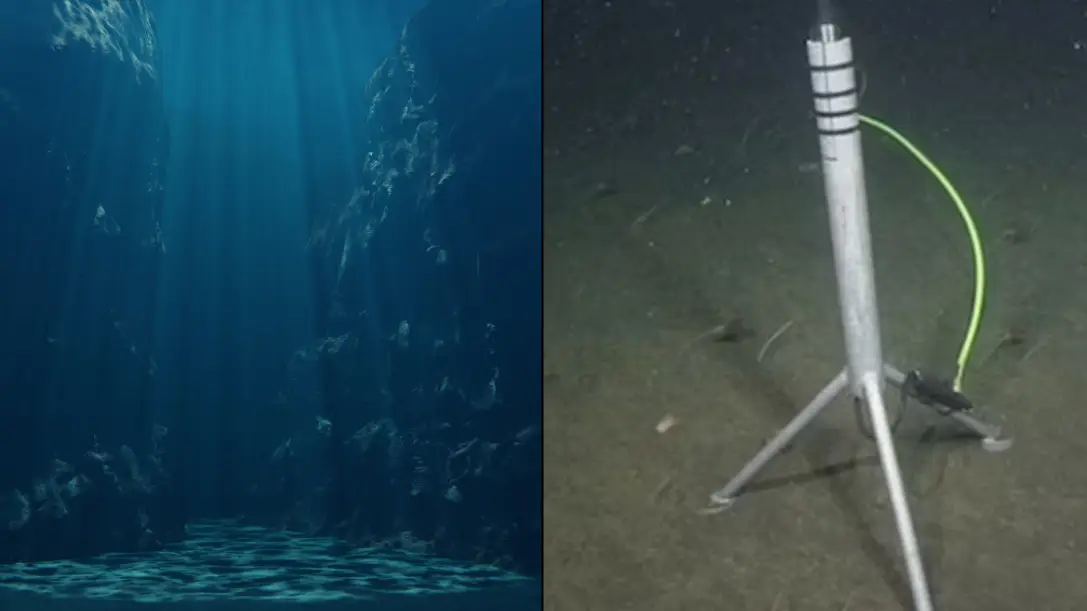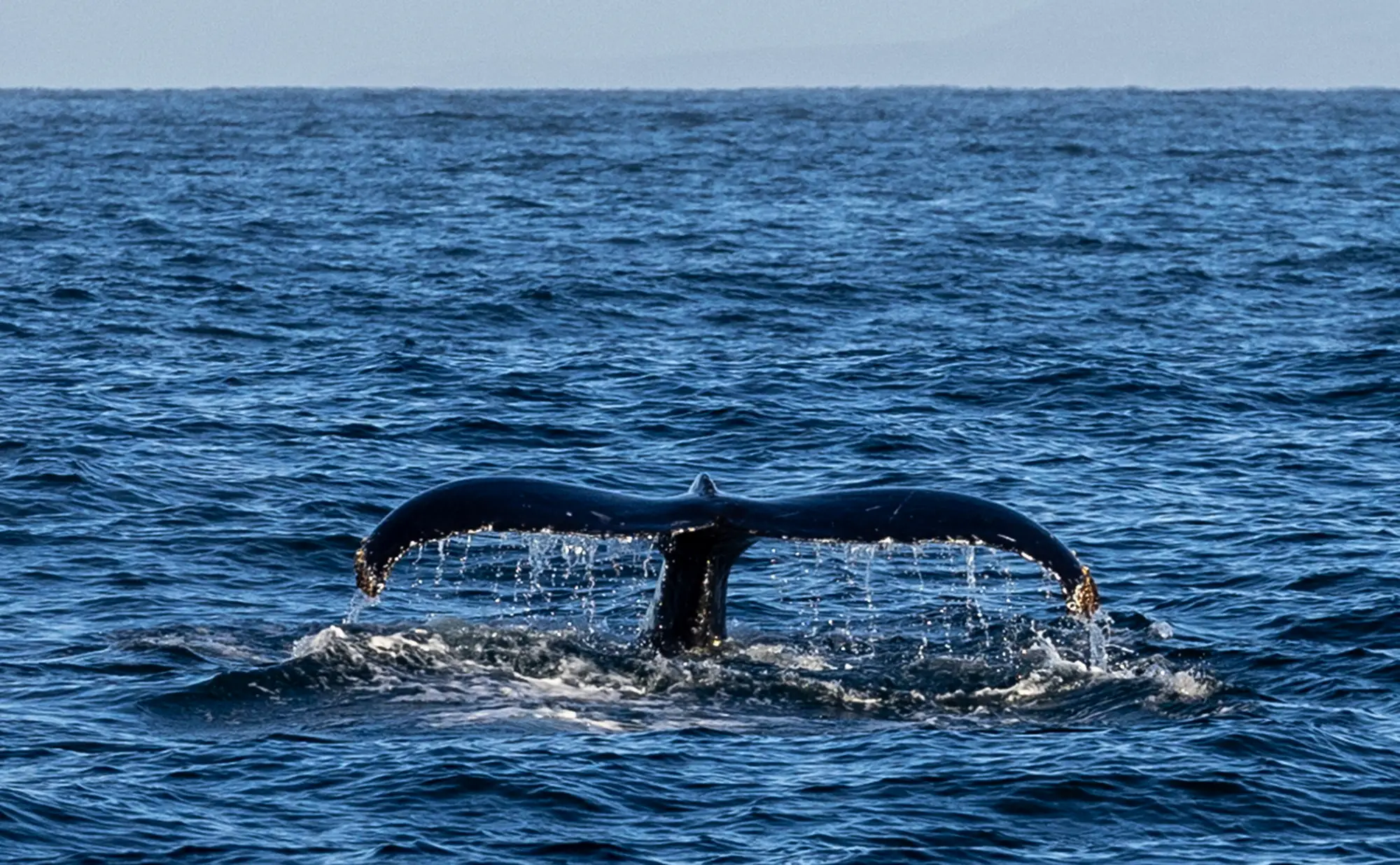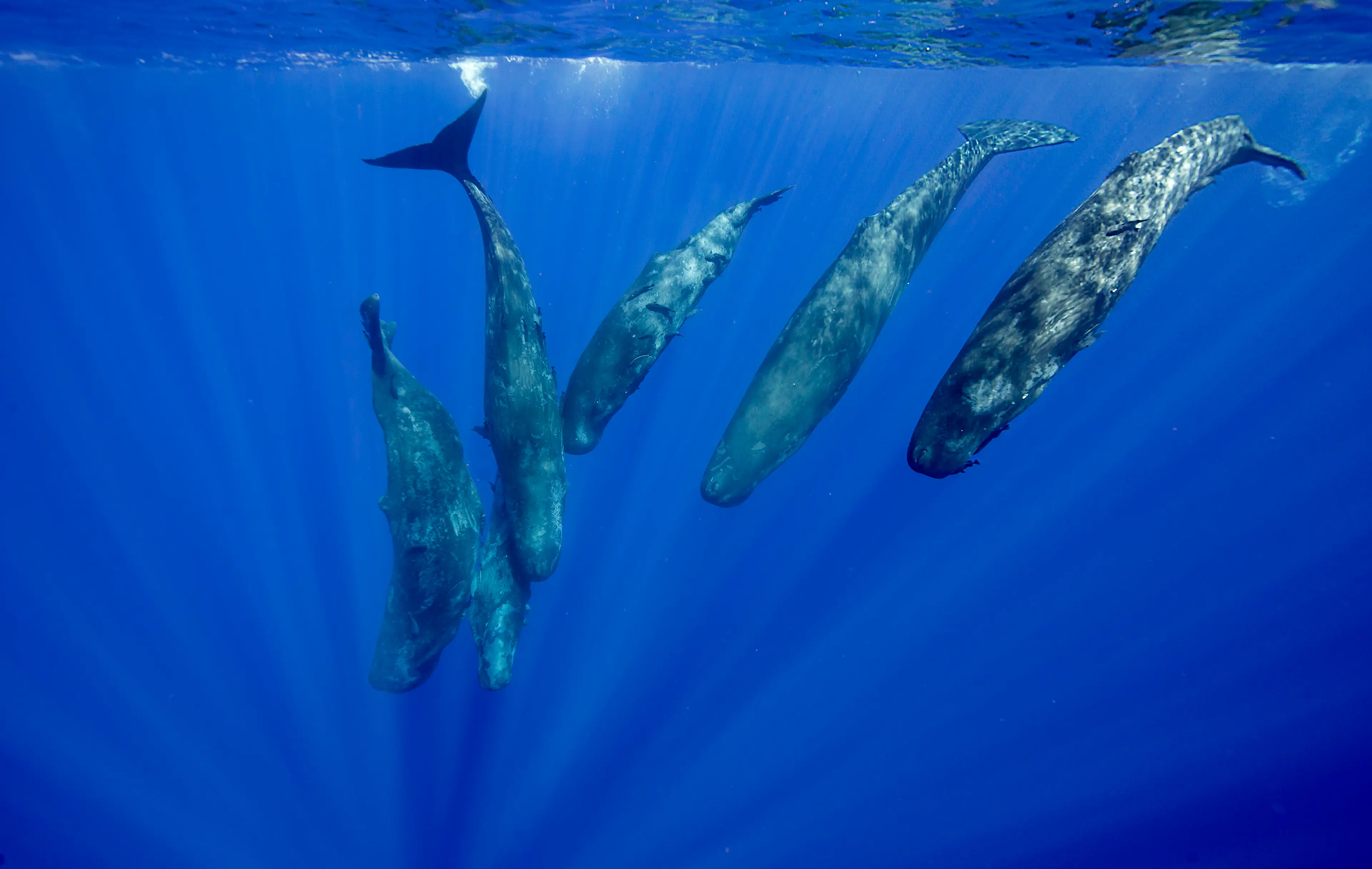
The source of a mysterious clicking noise coming from the depths of the ocean which had confounded experts has finally been explained.
The seas make up a majority of our planet and it's teeming with life that we don't get to witness on a regular basis.
So when experts who monitor the noises that come from it hear a clicking noise they can't quite explain at first it's an intriguing mystery to be unpicked.
A hydrophone plonked into the sand beneath the Pacific Ocean picked up the noise, which caused Will Oestreich of the U.S. National Science Foundation to start investigating.
Advert
The noise coming from off the California coast would start slowly and get faster, with the clicking eventually becoming a continuous sound that 'almost sounded like a human machine'.

Oestreich had years of experience at listening to and identifying the sounds the came from the deep, dark ocean and he was eventually able to identify their source.
Speaking to SFGATE, he said: "Each click is a fraction of a second. It’s really a needle in a haystack even though it’s the loudest known biological sound on Earth."
What is causing the underwater sound?
The expert revealed that this mysterious clicking noise was the echolocation of sperm whales sounding out their surroundings while they were on the hunt.
Oestreich said: "It’s a really cool tool for us researchers, because they’re telling us things about their own lives. They’re a top apex predator — tigers of the deep sea — and their behaviour reflects a food web that’s difficult for us to study.
"It was really exciting, because they are not a common sighting in this part of the world."

He further explained that the sperm whale could produce sounds that were over 200 decibels loud, and that researchers were able to hear the whales clicking on 1,272 days across a monitoring period of seven years.
Listening to the clicking sounds also allowed experts to identify more information about the whales in question and grow to recognise some of them.
Oestreich explained that the space between a whale's clicks could tell you how large they were so they could learn whether they were hearing adults, teenagers or baby whales.
Knowing where these mighty animals go, how many of them there are and what sort of demographics these pods are made up of is crucial for making sure not to destroy the ecosystem.
The sperm whale is listed as a vulnerable species, meaning they could be threatened with extinction if their circumstances don't change.